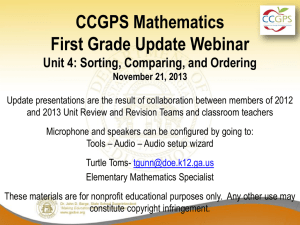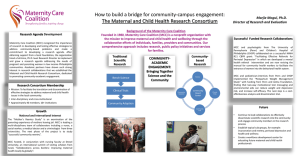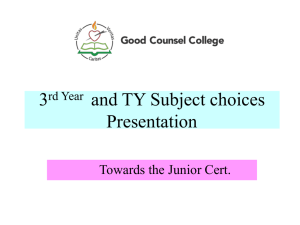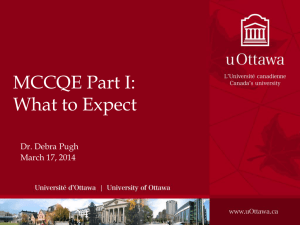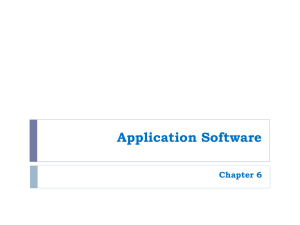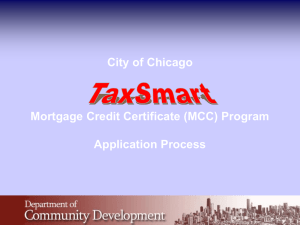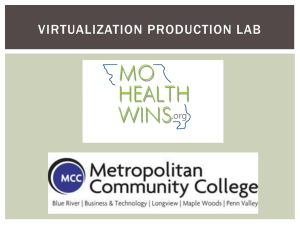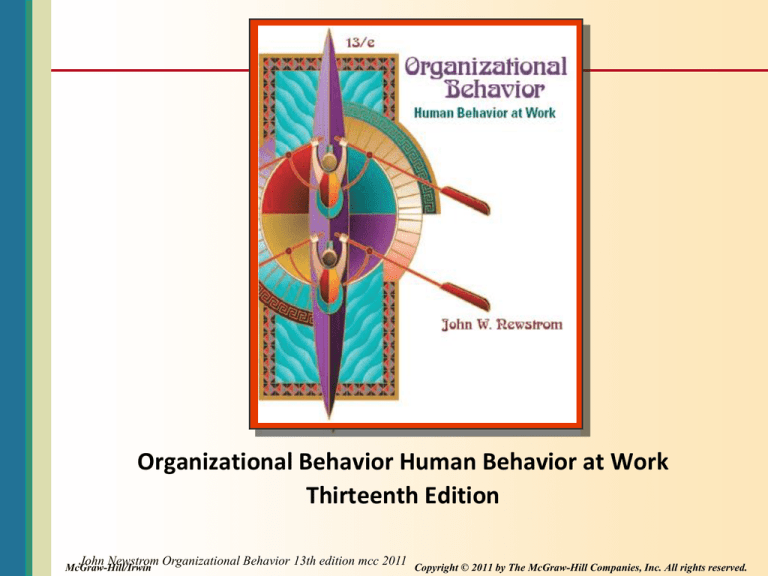
Organizational Behavior Human Behavior at Work
Thirteenth Edition
John Newstrom Organizational Behavior 13th edition mcc 2011 Copyright © 2011 by The McGraw-Hill Companies, Inc. All rights reserved.
McGraw-Hill/Irwin
Chapter Five
You can't send a duck to eagle school
Motivation
Principles of Greatness
John Newstrom Organizational Behavior 13th edition mcc 2011
Chapter Objectives
To describe:
• Models of motivation
• Job satisfaction and morale
• Work ethic
John Newstrom Organizational Behavior 13th edition mcc 2011
5-3
Introduction
Motivation…
• Takes place within a
culture and social system
• Role
• Status
John Newstrom Organizational Behavior 13th edition mcc 2011
5-4
A Model of Motivation
Potential Performance = Ability × Motivation (willingness)
Environment
Needs &
Drives
Tension
Opportunity
Effort
Goals &
incentives
Performance
Rewards
Ability
Need satisfaction
John Newstrom Organizational Behavior 13th edition mcc 2011
5-5
Where hands-up in class is banned
A. B+. B-. C. F. What did you get?
"The first thing pupils do is look at their score. Do you know
what the second thing is? Look at what the others got. Any
feedback from the teacher is ignored," says Professor Wiliam.
"As soon as you grade them, learning stops."
So in his experimental classroom, projects were returned with
no grades, just feedback. In an art lesson, for instance, pupils
made gecko sculptures and were given written feedback on
how to improve on their creation. Only once it had been
reworked did their gecko get graded.
"They didn't like it. Pupils are like drug addicts, they're
addicted to grades and we've got them hooked. They expect
grades. Parents expect grades."
Lane, Megan Where hands up in class is banned” BBC News ONLINE 7 September 2010 Accessed 1 04 2011
<<http://www.bbc.co.uk/news/education-11090044>>
John Newstrom Organizational Behavior 13th edition mcc 2011
Group Assignment: Motivation
Take notes / record the group discussion during this
presentation / discussion.
These notes will describe how you and your
group are motivated.
Mention at least three theories (minimum)
This Assignment is part of “group process” - LO 3
Upload the notes to your social network site.
John Newstrom Organizational Behavior 13th edition mcc 2011
Psychological Contract
John Newstrom Organizational Behavior 13th edition mcc 2011
Psychological Contract
“What I give and what I expect to get”
Discuss:
What is the psychological contract between
Students and teachers?
Husbands and wives?
Leaders and team members?
What happens if you don’t discuss and agree the
psychological contract at the beginning of your
relationship?
John Newstrom Organizational Behavior 13th edition mcc 2011
Motivation - forces that cause a person to act in certain ways
direction
and focus of
behavior
level of
effort
persistence
positive - a
person is
dependable,
creative,
helpful, timely
high
continual high
effort
Negative –late,
absent,
withdraws, low
performanc
does just
enough
gives up, works
sometimes
John Newstrom Organizational Behavior 13th edition mcc 2011
Motivation Forces
Discuss, giving examples and evidence to prove
your points, for each person in the group:
What is your direction and focus of behavior?
What is your level of effort?
What is your level of persistence?
John Newstrom Organizational Behavior 13th edition mcc 2011
McClelland - Motivational Drives
Achievement
Affiliation
Power
John Newstrom Organizational Behavior 13th edition mcc 2011
5-12
Achievement Motivation
Achievers work hard when
• They will receive personal credit for effort
• The risk of failure is only moderate
• They receive feedback about past performance
Characteristics of Achievers
•
•
•
•
•
•
Take responsibility for actions and results
Control their destiny
Seek regular feedback
Enjoy winning
Select assistants who are technically capable
Have little regard for personal feelings
John Newstrom Organizational Behavior 13th edition mcc 2011
5-13
Affiliation Motivation
People with affiliation motives
• Work better when complimented for favorable
attitudes and cooperation
• Surround themselves with likable people
• Have trouble assigning challenging tasks,
directing activities, monitoring effectiveness
• May have trouble getting things done
John Newstrom Organizational Behavior 13th edition mcc 2011
5-14
Power Motivation
A drive to influence people, take control, and
change situations
• Positive or negative
• organization or personal
John Newstrom Organizational Behavior 13th edition mcc 2011
5-15
What drives you?
Use your LSA results to discuss what motivate you.
Achievement
Affiliation
Power
John Newstrom Organizational Behavior 13th edition mcc 2011
Managers can Apply the Drives
•Observe employee
behavior to determine how
employees respond
•Identify strongest
motivational drive
John Newstrom Organizational Behavior 13th edition mcc 2011
Human Needs
Basic Physical Needs
• Includes food, water, sleep, air
• Universal
• May vary in strength
Secondary Needs
• Develop as people mature
• Includes self-esteem, sense of duty,
competitiveness, affection, self-assertion
• Nearly any management action will affect
secondary needs
John Newstrom Organizational Behavior 13th edition mcc 2011
5-18
Human Needs
Key conclusions about secondary needs:
• Strongly conditioned by experience
• Vary in type and intensity
• Subject to change across time
• Work in combination and influence each other
• Often hidden from conscious recognition
• Vague feelings, not specific physical needs
• Influence behavior in powerful ways
John Newstrom Organizational Behavior 13th edition mcc 2011
5-19
Maslow’s Hierarchy of Needs
Self-Actualization
Esteem and Status
Belonging and Social
Safety and Security
Physiological
John Newstrom Organizational Behavior 13th edition mcc 2011
5-20
Where do you fit on Maslow’s hierarchy?
Discuss what motivates you
John Newstrom Organizational Behavior 13th edition mcc 2011
Maslow’s Hierarchy of Needs
Today’s managers must…
• Identify and accept employee needs
• Recognize that needs differ among employees
• Offer satisfaction for currently unmet needs
• Realize that giving more of the same reward
may have diminishing impact on motivation
John Newstrom Organizational Behavior 13th edition mcc 2011
5-22
Herzberg’s Two-Factor Model
Motivational Factors
• Work itself, achievement, possibility of growth
• Advancement, recognition
Maintenance Factors
• Working conditions, pay
• Status
• Relations with supervisors, peers, subordinates
• Quality of supervision
• Company policy and administration
• Job security
John Newstrom Organizational Behavior 13th edition mcc 2011
5-23
Herzberg’s Two-Factor Model
Effects of Maintenance and Motivational Factors
High negative
feelings
(Absence)
High positive
feelings
Neutral
Maintenance factors (Presence)
(Absence)
John Newstrom Organizational Behavior 13th edition mcc 2011
Motivational factors
(Presence)
5-24
Hertzberg’s Two Factors
Discuss what motivates your group
Maintenance factors
Motivational factors – what are your intrinsic
rewards from the work itself
John Newstrom Organizational Behavior 13th edition mcc 2011
Behavior modification - Law of Effect
A person repeats behavior that has positive
results
• Stops behaviors that have negative results
Conditions
• Consequences must make sense
• Person must see connection between behavior
and consequences
John Newstrom Organizational Behavior 13th edition mcc 2011
5-26
Four Consequences of OB Mod
Application
Punishment
Positive
reinforcement
Negative
reinforcement
Extinction
Manager’s use
Withdrawal
Negative
Positive
Nature of consequence
John Newstrom Organizational Behavior 13th edition mcc 2011
5-27
Behavior Modification
Discuss how to change your group behavior
Punishment
Positive reinforcement
Negative renforcement
John Newstrom Organizational Behavior 13th edition mcc 2011
Locus of Control
Look at your LSA results
What is your Locus of Control – internal or external?
Alternately, complete the locus of control scales and
discuss your result.
John Newstrom Organizational Behavior 13th edition mcc 2011
VROOM - The Expectancy Model
Valence × Expectancy × Instrumentality =
Motivation
Valence = reward preference
from “I don’t care about the reward” to “I prefer to
have the reward”
Expectancy = belief that effort will complete task
from” I can’t do it” to “I can do it perfectly”
Instrumentality = reward probability
from ”I get the reward if I give excellent performance”
to “There is no relation between reward and
performance”
John Newstrom Organizational Behavior 13th edition mcc 2011
5-30
Valence, Expectancy, Instrumentality
Strong
avoidance
Indifference
Strong
preference
Valence
-1
0
Low probability
Expectancy
0
Low probability
+1
High probability
+1
High probability
Instrumentality
0
John Newstrom Organizational Behavior 13th edition mcc 2011
+1
5-31
Motivation
Uncertainty
• Strengthens the value of the
reward
• Strengthens the connections
between effort and performance
and performance and reward
John Newstrom Organizational Behavior 13th edition mcc 2011
5-32
Vroom’s Expectancy Theory
Discuss your group beliefs about the assessment
strategy in this course
Online quizzes –
– Expectancy
– Instrumentality
– Valence
Project
– Expectancy
– Instrumentality
– Valence
John Newstrom Organizational Behavior 13th edition mcc 2011
The Equity Model
Content and process theories of motivation look
at the individual person
Equity model compares their rewards (outcomes)
with their effort (inputs)
People…
• Observe one another
• Judge one another
• Make comparisons
Rewards Must seem to be “Fair”
John Newstrom Organizational Behavior 13th edition mcc 2011
5-34
Equity Model
Person's
Inputs
Person's
Outcomes
effort
rewards
job difficulty
education
John Newstrom Organizational Behavior 13th edition mcc 2011
fun at work
pay
The Equity Model Applied
People
• Have different perceptions
• Work within several social systems
• May have multiple reference groups
• Have shifting standards
• Have an upward orientation
• Have personal egos
• Are subject to equity sensitivity
• Need to see equal process
John Newstrom Organizational Behavior 13th edition mcc 2011
5-36
Equity Theory
Discuss your group beliefs about the
equity model
What do you put into the
Project, the course
What do you get out of the
Project, the course
Is it equitable? Explain?
John Newstrom Organizational Behavior 13th edition mcc 2011
Motivational Models
All have strengths and weaknesses
All add to understanding of
motivational process
New models mainly cognitive
Must be adapted to the situation
Blending of many models is useful
John Newstrom Organizational Behavior 13th edition mcc 2011
5-38
Social Values and work ethic
work ethic
• work is important and a goal in life
leisure ethic
• “me first”
connectness
• I need relationships
entitlement
• a belief that people should receive benefits
without having to work
• "I am Emirati so I should get ............"
• "the government will do it for me"
luck
• being in the right place at the right time leads to
instant wealth
John Newstrom Organizational Behavior 13th edition mcc 2011
Job satisfaction
Attitude:
Feelings and beliefs that affect
how people see their environment
how people commit to action
how people decide to behave
Job satisfaction:
feelings and emotions with which people view work
or studies
John Newstrom Organizational Behavior 13th edition mcc 2011
Job Satisfaction Activity
A. Working individually, rate, on a scale of 1 (low)
to 10 (high) the following:
1. Overall satisfaction with the course
2. Feeling of involvement with the educational
process
3. Commitment to the college
4. Rate your overall program (not one course).
5. Then, do the same thing for your team.
B. Discuss the results.
What are the overall reasons for the level of
satisfaction, involvement and commitment in the
class?
John Newstrom Organizational Behavior 13th edition mcc 2011
Group Assignment: Motivation
You have evidence of discussion on the following:
Psychological contract
Forces
Drives
Maslow
Hertzberg
Behavior Modification
Locus of Control
Expectancy theory
Equity Theory
Job satisfaction, Work ethic
Upload to your social network site
John Newstrom–
Organizational
Behavior 13th edition mcc 2011
LO 3 Motivation
group processes

